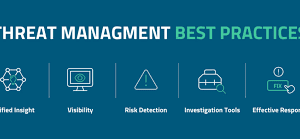Investing in upskilling your employees is essential for the growth of your organization. A Learning Management System (LMS) aids the management, deployment and delivery of employee training programs through eLearning authoring tools.
Picking a LMS that delivers effective training apart from facilitating creation of training content is a daunting task. At the same time, finding the right vendor is crucial to ensure good support throughout the implementation process and for the future. To make sure you are making the right decision, here are five important questions to ask your prospective LMS vendor:
1) How easily can I deploy and manage my training material using your LMS?
A LMS is supposed to enable effective building of training material with an easy-to-use interface. Find out if the LMS can easily incorporate multimedia content, animation, and allows addition of eBooks or PDFs in it.
Verify during the free trial whether the LMS is easy to navigate or not. In case it’s not, it won’t be a worthwhile buy since it ends up wasting valuable company time. When choosing an LMS it is also important to identify how efficiently it allows updation of old content and delivery of new content.
2) What does the LMS implementation process look like?
A LMS vendor can help you in planning the implementation process considering its huge impact on your entire organization along with your employees. Ask your vendor for the implementation plan so you can review how long the setup will take.
Sometimes the implementation process isn’t as smooth as expected and the vendor must have adequate technical support to deal with it. Question your vendor about the backup plan in such a situation. Apart from this, it is also important to ask whether the LMS will be implemented on premise or on cloud.
3) How does the LMS and its pricing scale?
A LMS must adapt to the growing needs of your organization. Find out from the vendor how the LMS scales when training content expands or in case you add additional users. It is highly time consuming to find and implement an entirely new LMS if the existing one is not scalable.
You must also ask your vendor how the pricing will grow when you add new content and new learners. It’s especially important to know what is included in the initial cost and whether or not all the features included in that cost are of use to you.
4) Will the LMS integrate with our existing systems?
For smooth functioning and automated administration, a LMS must be capable of integrating with all the platforms and technologies your company currently uses. If you need to implement additional third tools for a particular LMS, it can increase your expenses significantly.
If you know which tools/softwares can connect with your LMS, it makes things more convenient during the implementation process. Before you invest in a LMS, discuss with your vendor what changes need to be made to facilitate and support the integration.
5) Can the LMS reports and data be personalized?
Ask your vendor about the type of reports it can create because they reflect the impact of your learning. Without these you have no way to judge a learner’s progress. You may want to discuss whether these reports will be automated or not.
Personalized reporting helps in adding features that are specific to the organization. This allows them to create customized content for different audiences as per their departments.
Conclusion:
When you meet a prospective vendor to discuss your LMS options, do not forget to ask about their customer and technology support services and any related costs. Are there any other important questions you would like to ask your LMS vendor? Let us know in the comments below.



































